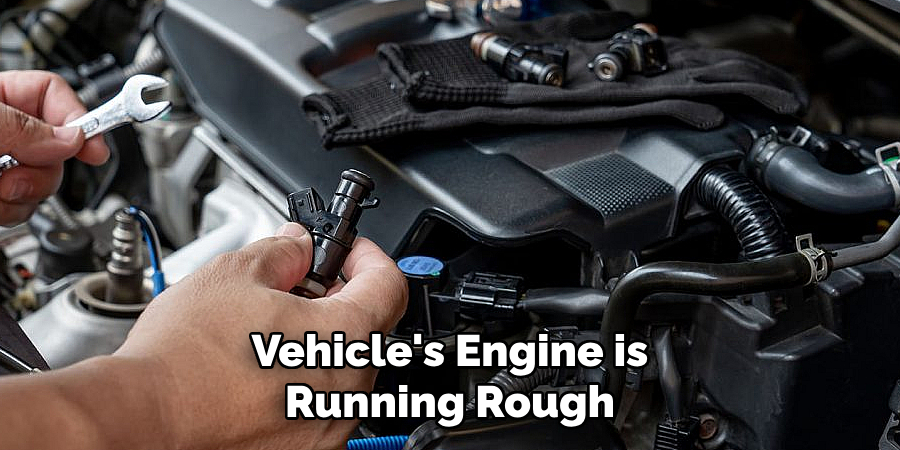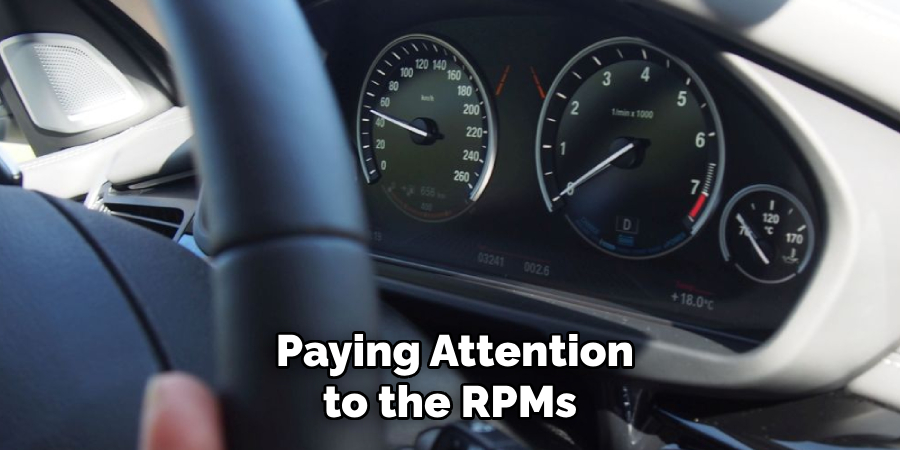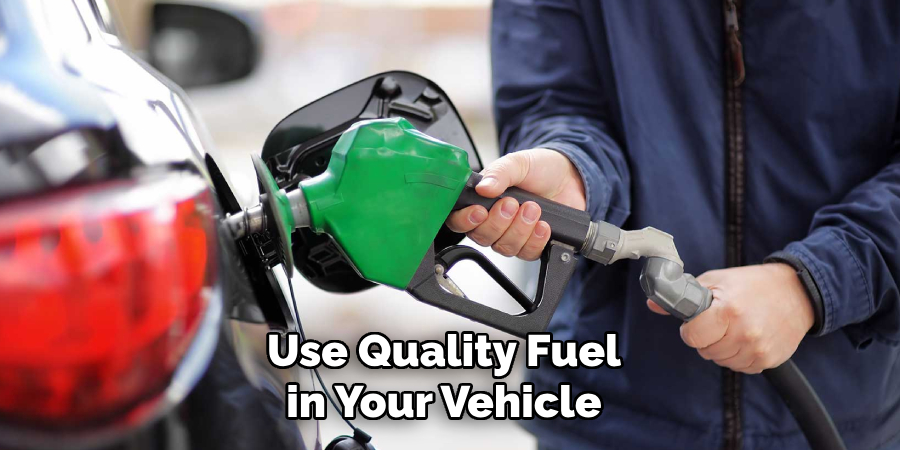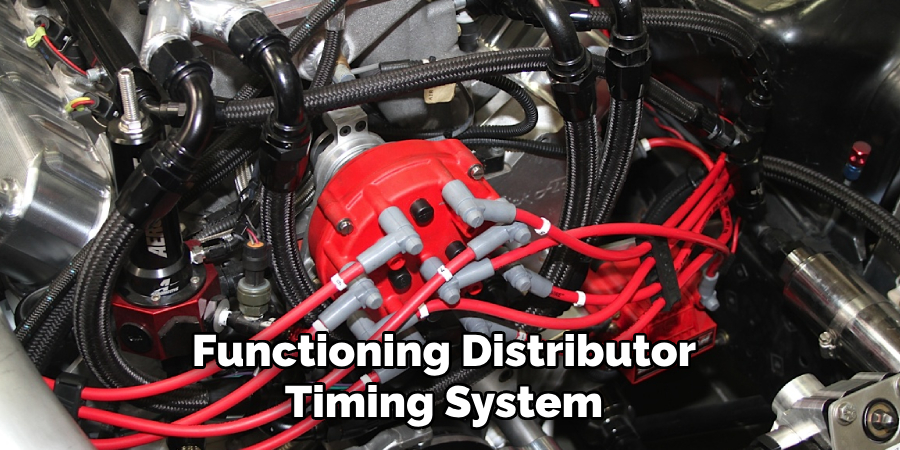Timing is everything when it comes to the proper functioning of your vehicle’s distributor. The distributor is a critical component in the ignition system, responsible for transmitting high-voltage pulses to the spark plugs at just the right time.

This ensures that the engine starts and runs smoothly. But what happens if the timing of your distributor is off? In this guide, we will discuss how to tell if distributor timing is off and what steps you can take to fix it.
What is Distributor Timing?
Before we dive into whether distributor timing is off, let’s first understand what is meant by “distributor timing.” Distributor timing refers to the exact moment when the distributor sends an electric current to the spark plugs, causing them to ignite and start the combustion process in the engine. This precise timing ensures that the fuel is ignited at just the right time for optimal engine performance.
11 Best Ways on How to Tell if Distributor Timing is Off
1. Difficulty Starting the Engine:
One of the most common signs of distributor timing being off is difficulty starting the engine. If you hear a clicking sound or no sound at all when trying to start your vehicle, it could be a sign that the distributor timing is off. This can happen due to various reasons such as a worn-out distributor cap or loose connections between spark plug wires and distributor cap.
2. Engine Misfires:

Another tell-tale sign of distributor timing being off is engine misfiring. If you notice that your vehicle’s engine is running rough, sputtering, or shaking, it could be due to incorrect timing of the distributor. This can cause the spark plugs to fire at the wrong time and result in poor engine performance. If left unaddressed, it can lead to more severe engine damage. This issue should be fixed as soon as possible to avoid further damage.
3. Poor Fuel Economy:
When the timing of your distributor is off, it can also affect your vehicle’s fuel economy. This is because incorrect timing can result in a decrease in engine power and efficiency, causing it to use more fuel than usual.
If you notice a sudden increase in fuel consumption without any apparent reason, it could be a sign of distributor timing being off. Poor fuel economy can also be due to other engine issues, so it is essential to get your vehicle checked by a professional mechanic.
4. Engine Stalling:
If the timing of your distributor is significantly off, it can cause the engine to stall or shut off completely. This happens because when the spark plugs fire at the wrong time, it disrupts the combustion process and can cause the engine to stop running altogether. If your vehicle stalls frequently, it is crucial to get the distributor timing checked and fixed.
5. Knocking or Pinging Sounds:
Incorrect distributor timing can also result in unusual noises coming from your vehicle’s engine, such as knocking or pinging sounds. These noises are a sign of detonation, where the air-fuel mixture in the engine’s cylinders detonates prematurely.

This can happen due to incorrect timing causing the spark plugs to fire too early or too late, resulting in engine knocking. If you hear these sounds coming from your vehicle, it is essential to get it checked by a mechanic.
6. Changes in Engine Performance:
When the distributor timing is off, you may notice changes in your vehicle’s overall engine performance. This includes a decrease in power, acceleration, and smoothness while driving. If you feel like your car is not performing as it usually does, it could be due to incorrect distributor timing. This can also damage other engine components in the long run if not addressed.
7. Difficult Gear Shifts:
Incorrect distributor timing can also cause issues with gear shifting. If you have a manual transmission vehicle, you may notice that it is more challenging to shift gears than usual. This is because incorrect timing can result in the engine running at lower or higher RPMs than it should, making it difficult to shift gears smoothly.
8. Engine Warning Lights:
Modern vehicles are equipped with onboard diagnostics systems that can detect issues with various components in the engine. If the timing of your distributor is off, it can trigger the check engine light or other warning lights on your dashboard. These lights indicate that there is a problem with your vehicle and should be addressed as soon as possible.

9. Visible Wear on Distributor Components:
One way to tell if your distributor’s timing is off is by visually checking the components of the distributor. Over time, the distributor cap and rotor can become worn out and develop cracks or corrosion, affecting their performance. If you notice visible wear on these components, it could be a sign that your distributor timing needs to be adjusted or replaced.
10. Problems with Emissions:
Incorrect distributor timing can also lead to issues with emissions in your vehicle. When the engine is not running efficiently due to off-time distributor firing, it can result in an increase in harmful emissions from the exhaust. This issue should be addressed promptly to avoid further damage to the environment and potential legal consequences.
11. Get a Professional Diagnosis:
If you suspect that your distributor’s timing is off, it is always best to get a professional diagnosis from a mechanic. They have the necessary tools and expertise to check the distributor timing accurately and make any adjustments or replacements if needed.

It is not recommended to try and fix this issue on your own, as it can result in further damage to your vehicle and compromise your safety on the road.
Following these steps can help you determine if your distributor’s timing is off and take the necessary steps to fix it. Remember, regular maintenance and timely repairs are essential for keeping your vehicle running smoothly and avoiding any major issues. If you notice any of the signs mentioned above, it is best to get your vehicle checked by a mechanic as soon as possible.
Don’t ignore any engine-related issues, as they can lead to more significant problems and costly repairs in the future. Keep your vehicle running at its best by ensuring that the distributor timing is always accurate. So, pay attention to these signs and take proper care of your car for a smooth driving experience every time!
Additional Tips and Tricks to Tell if Distributor Timing is Off
1. If you notice a decrease in engine performance, such as difficulty starting or reduced power, it could be a sign that your distributor timing is off. This can also result in poor fuel economy and higher emissions.
2. Another way to check if your distributor timing is off is by paying attention to the RPMs when idling. If they fluctuate erratically, it could indicate an issue with the timing.

3. Additionally, if you experience unusual engine noises, such as knocking or pinging, it could be a sign of incorrect distributor timing. This is because the engine may not be firing at the right time, causing abnormal sounds.
4. Keep an eye on your vehicle’s overall performance and listen for any strange noises while driving. If you notice any changes, it’s always a good idea to get your distributor timing checked by a professional mechanic.
5. Regularly maintaining and checking the condition of your distributor can also help prevent timing issues. Make sure to clean and lubricate it according to your vehicle manufacturer’s recommendations.
6. If you have an older vehicle with a points-style distributor, make sure to regularly replace the points and condenser as they can wear down over time and affect the timing.
7. It’s also important to check for any vacuum leaks in your engine, as these can cause incorrect distributor timing. These leaks can be easily identified with a smoke test or by using a vacuum gauge.
8. Lastly, always make sure to use quality fuel in your vehicle. Poor quality fuel can lead to carbon buildup and other issues that can affect the performance of your engine, including timing problems.

Following these tips and tricks can help you keep your distributor timing in check and prevent any potential issues. Remember to always consult a professional mechanic if you suspect that your distributor’s timing is off, as they have the expertise and tools to properly diagnose and fix the problem.
With regular maintenance and checks, your vehicle’s distributor should continue to function smoothly for years to come. Happy driving!
Maintenance Tips for Distributor Timing
1. Regular Inspections:
It is important to regularly inspect the distributor’s timing to ensure that it is functioning correctly. This should be done at least once a year or after every 10,000 miles driven. A malfunctioning distributor timing can cause a variety of problems, including poor engine performance and increased fuel consumption. If any issues are found during the inspection, they should be addressed immediately to prevent further damage.
2. Cleaning and Lubrication:
The distributor timing system consists of several moving parts that need to be kept clean and well-lubricated for optimal performance. Over time, dirt and debris can accumulate in these parts, causing them to wear out faster.
It is recommended to clean and lubricate the distributor’s timing components every 6 months. This will help maintain their functionality and prolong their lifespan.
3. Checking for Wear and Tear:
As with any mechanical component, wear and tear is inevitable for distributor timing systems. It is important to regularly check for signs of wear, such as cracks or corrosion on the distributor cap and rotor, loose wires, or worn-out distributor points.
If any of these parts show significant wear and tear, they should be replaced immediately to avoid any potential issues.
4. Adjusting the Timing:
Over time, the distributor’s timing can become slightly off due to regular use and wear. It is important to periodically adjust the timing to ensure that it is in sync with the engine’s ignition timing.
This can help improve engine performance and prevent any potential issues. Consult a mechanic or refer to your vehicle’s manual for proper instructions on how to adjust the distributor timing.
5. Use Quality Parts:
When it comes to maintaining your distributor timing system, using quality parts is crucial. Low-quality parts may be cheaper, but they can cause more harm than good in the long run. Always opt for genuine OEM parts or high-quality aftermarket parts that are specifically designed for your vehicle’s make and model.
6. Keep an Eye on Your Engine:
A properly functioning distributor timing system is essential for a smooth-running engine. If you notice any unusual noises, vibrations, or changes in performance from your engine, it could be a sign of a problem with the distributor timing. It is important to address these issues immediately to prevent further damage to your vehicle’s engine.

7. Seek Professional Help:
If you are unsure about how to maintain your vehicle’s distributor timing, it is best to seek professional help. A mechanic or technician can perform a thorough inspection and provide any necessary repairs or adjustments. They can also offer valuable advice on how to properly maintain your distributor timing system.
Following these maintenance tips can help keep your distributor timing system in good working condition, ensuring smooth and efficient engine performance. Remember to always prioritize regular inspections and address any issues as soon as they are identified to avoid costly repairs in the future.
By taking proper care of your distributor timing, you can prolong the lifespan of your vehicle’s engine and improve its overall performance. So, make sure to follow these tips and keep your engine running smoothly! Happy driving!
Frequently Asked Questions
How Can I Tell if My Distributor Timing Is Off?
There are a few signs that indicate your distributor timing may be off. These include difficulty starting the engine, decreased fuel efficiency, and a rough idle or hesitation while driving. You may also notice unusual sounds coming from the engine or experience a decrease in overall performance.
What Causes Distributor Timing to Go Off?
Distributor timing can go off due to a variety of reasons, including wear and tear on the ignition components, faulty ignition points or condenser, or improper installation of the distributor. Additionally, extreme temperatures and high humidity can also affect the timing.
How Can I Check and Adjust My Distributor Timing?
To check your distributor timing, you will need a timing light and a service manual for your specific vehicle. The process involves connecting the timing light to the battery and spark plug wire, aiming the light at the timing marks on the engine, and adjusting the distributor accordingly. It is crucial to follow the instructions in your service manual carefully to ensure accurate timing.
Can I Adjust My Distributor Timing Myself?
While it is possible to adjust your distributor timing yourself, it is not recommended unless you have prior experience or knowledge in this area. Even a small mistake can have significant consequences for your engine’s performance and longevity. It is always best to consult a professional mechanic for any adjustments or repairs related to your ignition system.
How Often Should I Check My Distributor Timing?
It is recommended to check your distributor timing every 10,000-15,000 miles or as specified in your vehicle’s service manual. However, if you notice any of the symptoms mentioned earlier, it is best to have your timing checked immediately. Regular maintenance and tune-ups can also help prevent distributor timing issues.
What Happens If My Distributor Timing Is Off?
If your distributor timing is off, it can lead to a variety of issues, including poor engine performance, decreased fuel efficiency, and potential damage to the engine. It can also cause misfiring and backfiring, which can be dangerous while driving.
If you suspect your distributor timing is off, it is crucial to have it checked and repaired as soon as possible. Ignoring the issue can result in more significant problems down the line.
Can I Still Drive My Car if the Distributor Timing Is Off?
It is not recommended to drive your car if the distributor timing is off. As mentioned earlier, it can lead to poor engine performance and potential damage to your vehicle. If you notice any issues with your ignition system, it is best to have it inspected and repaired before driving again.
Driving with a faulty distributor timing can also be dangerous and compromise your safety on the road.
Conclusion
All in all knowing how to tell if distributor timing is off, what causes it, and how to check and adjust it is essential for maintaining the performance and longevity of your vehicle.
Regular maintenance and tune-ups can help prevent distributor timing issues, but if you notice any symptoms or suspect a problem with your ignition system, it is best to have it checked by a professional mechanic. Ignoring the issue can lead to more significant problems down the line and compromise your safety on the road.
So, make sure to keep an eye out for any signs of off-distributor timing and address them promptly to ensure a smooth driving experience. Finally, always consult your vehicle’s service manual for specific instructions on how to check and adjust your distributor timing for optimal results. Happy driving!

Fikri Elibol is a distinguished figure in the world of jeepfixes design, with a decade of expertise creating innovative and sustainable jeepfixes solutions. His professional focus lies in merging traditional craftsmanship with modern manufacturing techniques, fostering designs that are both practical and environmentally conscious. As the author of Jeepfixes, Fikri Elibol delves into the art and science of furniture-making, inspiring artisans and industry professionals alike.
Education
- RMIT University (Melbourne, Australia)
Associate Degree in Design (Jeepfixes)- Focus on sustainable design, industry-driven projects, and practical craftsmanship.
- Gained hands-on experience with traditional and digital manufacturing tools, such as CAD and CNC software.
- Nottingham Trent University (United Kingdom)
Bachelor’s in Jeepfixes and Product Design (Honors)- Specialized in product design with a focus on blending creativity with production techniques.
- Participated in industry projects, working with companies like John Lewis and Vitsoe to gain real-world insights.
Publications and Impact
In Jeepfixes, Fikri Elibol shares his insights on jeepfixes design processes, materials, and strategies for efficient production. His writing bridges the gap between artisan knowledge and modern industry needs, making it a must-read for both budding designers and seasoned professionals.
